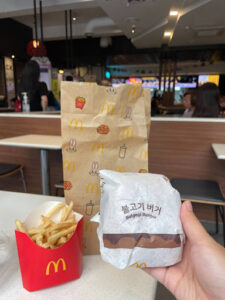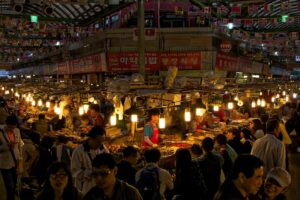
Demystifying Korean Resumes and Cover Letters: A Comprehensive Guide
Understanding the standards and practices for Korean resumes and cover letters is crucial when looking for jobs in South Korea. These records are essential for demonstrating your abilities, background, and suitability for a job. We will provide you a thorough overview of Korean resumes and cover letters in this article, giving you the information and resources you need to produce polished and successful application materials.
Resume Format:
Korean resumes often adhere to a particular format. Start with a quality head shot of yourself, then include your name, contact information, and a succinct self-introduction. Include areas that highlight your schooling history, professional background, talents, certifications, and language fluency. Be careful to start with the most current experience or qualification when listing your experiences and education.
Concise and Well-Ordered:
Korean resumes need to be clear and organized. Limit the length of your resume to one or two pages, and concentrate on pertinent and useful content. To emphasize important accomplishments and duties in your past employment, use bullet points. Make sure your resume is simple to read and visually appealing by using distinct headings and a standard structure.
Academic Background:
Academic accomplishments are highly valued in Korean resumes. Include information about your academic institutions, degree programs, majors, graduation dates, any accolades or awards received in school. If applicable, include a brief description of your thesis or research. In order to distinguish out from other applicants, highlight any famous programs or colleges you have attended.
Work Experience:
Highlight your achievements and responsibilities in each capacity when describing your prior employment. Highlight any measurable accomplishments, projects you worked on or outcomes you produced. To illustrate your abilities and the influence you had in your past roles, use action verbs and precise examples. Provide references from your former employers or bosses, if you can.
Language Proficiency:
Fluency in the Korean language is highly valued in a variety of job fields. Indicate your degree of Korean proficiency, including native, fluent, intermediate, and basic. Include any language certifications, such as the TOPIK (Test of Proficiency in Korean) certificate, in your resume to attest to your proficiency in the language.
Cover Letter:
Korean cover letters, known as “자기소개서” (self-introduction letters), provide you the chance to go into more detail about your qualifications and explain why you are applying for a particular employment. Introduce yourself with a polite salutation. Describe your reasons for becoming interested in the job and the organization, as well as how your qualifications match those needed for the role. Show off your understanding of the business and express your excitement for helping it succeed.
For the best chance of success on the South Korean job market and to effectively present your qualifications, you must create a well-designed Korean resume and cover letter. You can show yourself as a strong and competitive applicant by adhering to the suggested structure, stressing your educational history and professional experience, highlighting language competence, and producing an effective cover letter. Always remember to customize your application materials for each unique employment opportunity and to speak in a respectful and professional manner at all times. With these tips and pointers, you’ll be able to successfully negotiate the nuances of Korean resumes and cover letters and leave a good impression on prospective employers.








